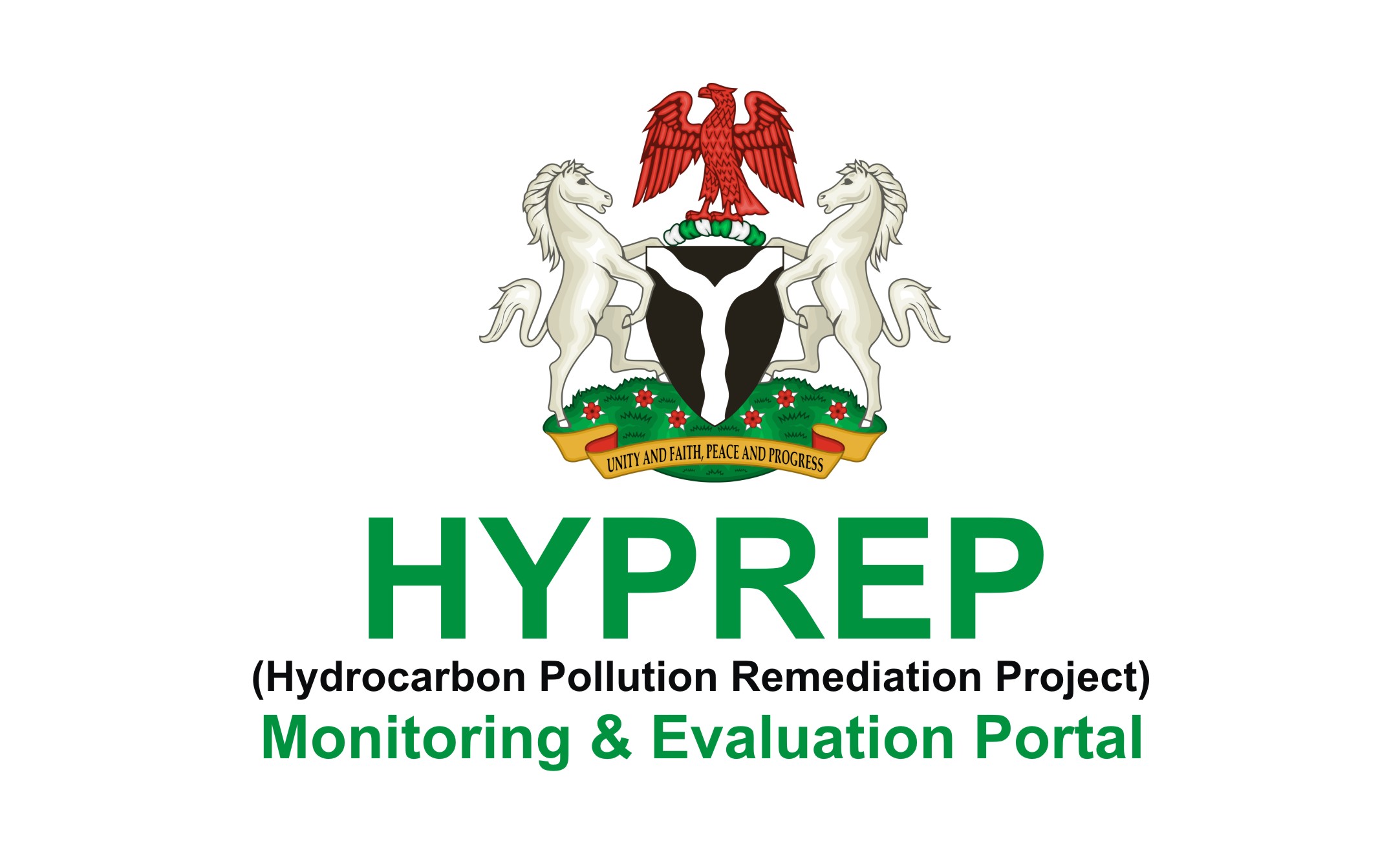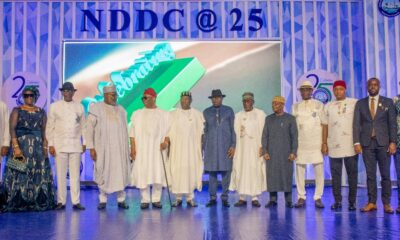Business
NIMASA Seamen Training Boosts Nigeria-Philippines’ Ties
The Nigerian Maritime
Administration and Safety Agency (NIMASA) has expanded the scope of seafarers’ training in faraway Philippines, where more than 1,000 Nigerians are currently undergoing training.
The training is a component of the Nigerian Seafarers Development Programme (NSDP), an intervention programme designed to address the manpower requirements in the country’s maritime sector.
NIMASA has spent about N20 billion to train 2,500 seafarers under the programme from 2011 to 2015.
The Director-General of NIMASA, Dr Patrick Akpobolokemi, confirmed the expenditure after the payment of the 2015 training fees of the cadets in various maritime institutions across the world.
He said that the amount included training fees, allowances, cost of laptops, books and other learning gadgets.
In 2009, NIMASA initiated the NSDP with the aim of developing human capacity and bridging the manpower gaps existing in the maritime industry.
The NSDP is a scholarship scheme, which is jointly funded by NIMASA and state governments in the ratio of 40 per cent to 60 per cent.
Recently, some NIMASA officials and journalists undertook a tour of three universities in the Philippines, which are handling the training of Nigerian cadets under the NSDP.
Observers are quick to point out that the Philippines is home to 28 per cent of the total population of seafarers in the world.
Mr Calistus Obi, NIMASA’s Executive Director, Marine Labour and Cabotage Service, who led the delegation to the Philippines, said that the training had boosted the bilateral relations existing between Nigeria and the Philippines.
At the Lyceum of Philippines University (LPU), Batangas City, 325 Nigerian cadets are undergoing maritime training, while 153 others are undergoing similar training at the University of Perpetual Help, Las Pinas City.
Besides, 350 Nigerians are currently receiving training in University of Cebu, Cebu City, also in Philippines.
Obi said that President Goodluck Jonathan had mandated NIMASA to continue with the NSDP.
He urged the students to be disciplined, adding that their commitments would determine government’s willingness to continue sponsoring the scheme.
Obi, however, said that Nigeria had started building a maritime university, the first of its kind in West Africa.
“We, the staff of NIMASA, are making sacrifices to ensure that you (cadets) continue to enjoy the benefits of the training.
“We have to cut foreign trips by staff as well as other expenses so as to ensure that you complete your training,” he said.
The executive director commended the management of the training institutions for also giving the students moral education.
Obi urged the students to exhibit good behaviour in all their endeavours so as to encourage the institutions to continue to partner with Nigeria.
He described the students as the “ambassadors” and the hope of Nigeria, reminding them, however, that “to whom much is given much is expected.
“President Goodluck Jonathan and the Director-General of NIMASA, Dr Patrick Akpobolokemi, as well as the entire staff of NIMASA do not want anything short of success from these experiences.
“We have zero-tolerance for indiscipline and the purpose of this training is to enable you to excel and come back home to impart the knowledge to other students,” Obi said.
Speaking, Amb. Akinyemi Farounbi, the Nigerian Ambassador to the Republic of Philippines, said that there were many opportunities in the maritime sector for Nigerian youths to tap into.
He, however, noted that the performance of Nigerian cadets undergoing seafarers training had motivated the Government of Republic of Philippines to establish three universities in Nigeria.
Farounbi said: “We have seen NIMASA, not only as an instrument of training our youths in marine engineering, marine transportation and naval architecture.
“We have also seen NIMASA as a tool of promoting and forging positive diplomatic relations between Philippines and Nigeria.
“It has been possible for this embassy to encourage three universities to establish affiliate universities in Nigeria simply because they have seen what the Nigerian students are capable of doing.
“I am proud to report that all the NIMASA scholars, as they are called here, are doing well.
“You call them students back home in Nigeria. They are called scholars here because of their capacity, their brilliance, their diligence and their ability in each of the three universities.
“I am proud of whatever had been NIMASA’s recruitment system, which had turned out these students who are doing very well here,” the envoy said.
Responding, Obi conveyed the appreciation of NIMASA’s management for the ambassador’s efforts to support the agency and care for the students.
“The director-general of NIMASA has also asked me to thank you very much for the way you have so far taken care of our students here,” Obi told Farounbi.
Some of the students undergoing the seafarers’ training in the Philippines commended the Federal Government for instituting the NSDP.
“I have never heard or witnessed in my life an administration which has supported parastatal agencies like that of President Goodluck Jonathan,” Mr Raphael Eguagie, the leader of the students at the University of Perpetual Help, told the delegation.
He also commended Akpobolokemi and the NIMASA management for their efforts to make the scholarship scheme a huge success.
Eguagie also conveyed the gratitude of the students for their selection for the training.
Miss Rita Idonor, a marine engineering student, recalled that the students were initially having communication problems in the Philippines, adding, however, that they overcame the difficulties and soon adapted to Filipino ways of life.
She said that the school’s management was also teaching them Filipino, the national language of the Philippines, to enable them to quickly adapt to the Filipino ways of life.
“I am, however, appealing to the university authorities to engage more English-speaking instructors in order to reduce the language barriers,” Idonor told NAN.
Another student, Miss Nyora Okubama, who is studying marine transportation, said that she was undergoing studies in navigation, collusion, regulation, stability and training.
She, however, said that she would be glad if the government obliged them to go for practical sea time experience after their three years of studies.
“I am prepared go onboard the vessel for the one-year sea time training.
“I am prepared for the sea time experience because I have learnt that the sea could be a little bit rough. However, I don’t think I will be sea sick; I am fully prepared for the sea time training,” Okubama said.
Another marine engineering student, Mr Rupert Kosin, urged the university authorities to employ more marine engineering instructors to teach them the theoretical aspects of the courses.
“I believe that they are basically better in the practical aspects than the theoretical aspects.
“The school authorities had also facilitated our learning Tagalog (the local name for Filipino language) to reduce our communication problems,” he said.
Mr Perekeme Odofori, another marine engineering student, said he had undergone a lot of practical training but needed to improve on the theoretical aspects.
He, however, said that the Nigerian ambassador had promised to urge the management of the university improve on the theoretical aspects of the training schedule.
He expressed his willingness to come back to Nigeria to impact his knowledge to other citizens, who had yet to undergo the training.
Mr Charles Ughovero, the President of the Nigerian students in University of Cebu, lauded the management of NIMASA for giving them the privilege to study in the Philippines.
He said that apart from being trained in core areas of shipping and allied topics, they were also being trained on how to handle commercial contracts.
Dr Peter Laurel, the President, Lyceum of the Philippines University (LPU), Batangas City, said that the management of the university would give quality training to Nigerian cadets.
Laurel, who was represented by Mr Frederick Badillo, a top official of the university, said that the university had good facilities that would facilitate the training of the students to become successful maritime professionals in future.
In a message, Mr Anthony Tamayo, the President of the University of Perpetual Help, commended the management of NIMASA for choosing his institution for the programme.
Tamayo, who was represented by his son, Dr Antonio Tamayo, the Chief Executive Officer of the university, however, urged the Federal Government to use the training programme to strengthen the bilateral relations between Nigeria and the Philippines.
He noted that the Nigerian cadets were quite eager to learn, adding that they were also very courteous and diligent in their studies.
“The bilateral relations between the Philippines and Nigeria had been strengthened, particularly in the educational area, due to the fact that both nations have been able to exchange students.
“Nigerian scholars, after the three-year study, would have acquired appropriate skills to practise the profession.
“Since English is the medium of our instruction here in Philippines because both Nigerian and Filipinos speak English, this has reduced the level of language barrier,” Tamayo said.
Mr Atty Augusto, the President of Cebu University of Maritime Education and Training Centre (CU-METC), said that Nigerian students were now competent enough in the shipping field to compete with their counterparts worldwide.
He, however, advised the Nigerian cadets to enrol for advanced maritime studies after the training.
Augustino vouched for the competence of the Nigerian cadets, saying: “Nigerian students often come first in both the practical and theoretical aspects of their studies.”
The students, nonetheless, appealed for an increase in their monthly allowances to enable them to take care of some of their personal needs such as stationeries, transportation and clothing.
All in all, observers insist that the NIMASA seafarers’ training in the Philippines will enhance the human resource capacity of Nigeria’s maritime sector, while boosting bilateral relations between the two countries.
Cole writes for News Agency of Nigeria (NAN)
Aisha Cole
Business
NCDMB, Dangote Refinery Unveil JTC On Deepening Local Content

Business
Industry Leaders Defend Local Content, … Rally Behind NCDMB

Business
Replace Nipa Palms With Mangroove In Ogoni, Group Urges FG, HYPREP

-

 Rivers2 days ago
Rivers2 days agoNDDC Inaugurates Ultra-Modern Market In Rivers Community
-
Opinion2 days ago
Why Reduce Cut-Off Mark for C.O.E ?
-
News1 day ago
Nigeria’s Inflation Rate Dropped To 22.22% In June -NBS
-
Niger Delta2 days ago
Adopt African System Against Crime, Don Urges Security Agencies
-
Politics1 day ago
2027: Group Vows To Prevail On Diri To Dump PDP For APC
-

 Features2 days ago
Features2 days ago25 Years After: NDDC Celebrates Milestones Of Impactful Development
-
Politics2 days ago
Atiku’s Exit No Problem To PDP – Makinde
-

 News1 day ago
News1 day agoRivers Police Arrest Notorious Cultist, Recover Sophisticated Ammunition

